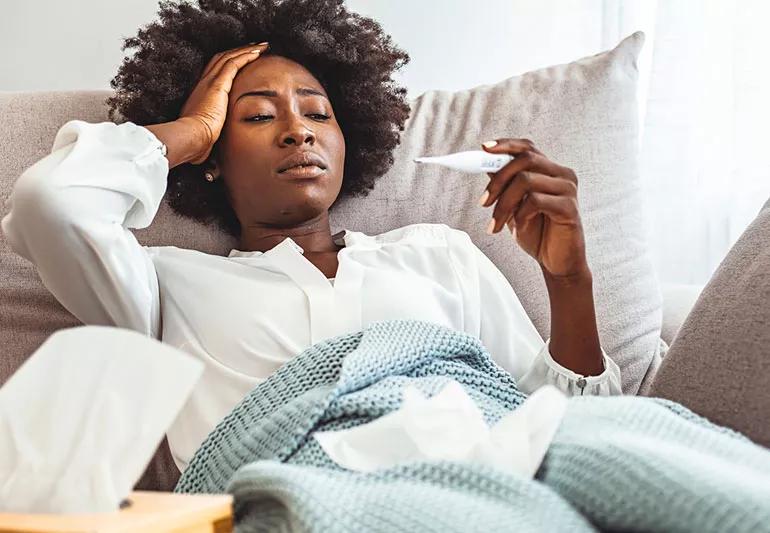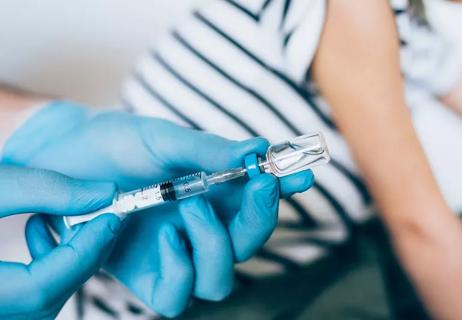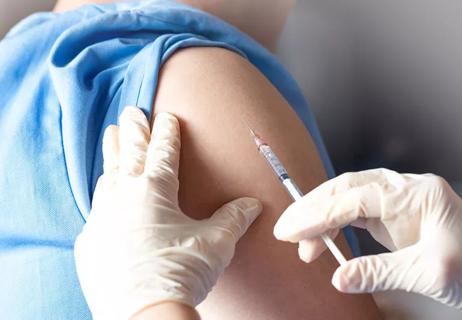When it makes sense to delay your flu shot — and when it doesn’t

Fall brings many traditions like raking leaves, carving pumpkins, turning the clocks back and getting a flu shot. In fact, the latter might be the most important thing you do in the autumn.
Advertisement
Cleveland Clinic is a non-profit academic medical center. Advertising on our site helps support our mission. We do not endorse non-Cleveland Clinic products or services. Policy
The Northern Hemisphere flu season runs from October to May. Experts recommend getting a shot earlier rather than later in the season, so you have immunity built up before the peak flu time, which falls between December and February.
Public health data suggest that the flu causes thousands of deaths and hundreds of thousands of hospitalizations each year. Of course, plenty of other viruses are also always circulating during winter, including the common cold and respiratory infections. When you’re fighting off an illness, is getting a flu shot still the right thing to do — or is it better to wait?
"It depends on how sick you are,” says Donald Ford, MD, MBA, Chairman of the Department of Family Medicine at Cleveland Clinic. “If you have a mild illness or a cold — what we normally think of a routine viral infection — it’s fine to go ahead with your flu shot. But if you’re running a fever, feeling rundown, or having trouble staying hydrated, it may be wiser to wait a few days.
The idea isn’t that the flu shot is unsafe when your sick – rather, your immune system works best when it’s not already preoccupied fighting another illness. “Waiting until you’re back on your feet helps your body mount the strongest response, giving you better protection through flu season,” Dr. Ford says.
Advertisement
Getting a flu shot while mildly sick isn’t harmful, but your body may not mount as strong an immune response compared to waiting until you feel better.
“The immune system is preoccupied with fighting off what you’re already sick with,” says Dr. Ford. “And so you want your system in a prepared state. That way, when you get the vaccine, you get a good response. And that bolsters your immunity to influenza that will hopefully last you through the whole flu season.”
In a perfect world, getting a flu shot would ensure you stay healthy. But if you get sick a few days after getting a flu shot, will that hurt your chances of developing immunity for the season?
Thankfully, likely not. “The immune response to any vaccination happens fairly quickly, typically within the first 24 to 48 hours,” says Dr. Ford. “Some people feel like they ‘got sick from the flu shot,’ but doctors say that’s usually coincidence — their body was already fighting another infection. The shot itself can only cause mild, short-term reactions like soreness or fatigue."
Deciding to cancel a flu shot can be a game-time decision. “People can wait pretty close to when they’re getting it,” says Dr. Ford. “Most of us have experienced colds and wintertime viruses, and there’s usually an arc to them. You usually know when you’re starting to get better. Typically, they only last a few days, sometimes up to a week.”
The key is paying close attention to your symptoms — and determining whether you’re on the upswing or downswing of that arc. “If you’re getting better and your flu shot is scheduled for the next day, you’re probably fine,” Dr. Ford says. “If you’re still feeling bad or getting worse, then that might be the time to at least check with your doctor about whether you should proceed.”
Erring on the side of caution and postponing your appointment until you feel better is never a bad idea, however. “Flu shots are widely available in doctor’s offices,” Dr. Ford says. “They’re in all the pharmacies. If you’re not sure if you should go ahead and get it, it really isn’t a big deal if you delay it by a day or two.”
Advertisement

Sign up for our Health Essentials emails for expert guidance on nutrition, fitness, sleep, skin care and more.
Learn more about our editorial process.
Advertisement

Doctors say that vaccination is an effective way to guard against influenza — and that it cannot give you the virus

Rolling up your sleeve in September or October is ideal — but it’s never too late to get your flu shot

Getting vaccinated prevents the spread of illness

The guidelines have changed — here's what you should know

They can feel similar, but the differences matter — especially if you’re at higher risk for complications

This fruit has clear nutritional benefits — but there’s little evidence it can prevent or treat illness

Follow these tips, like hand washing and self-care, to keep illness at bay as you celebrate the season

Options like fatty fish, citrus fruits and sunflower seeds can help keep you well and heal faster

Even small moments of time outdoors can help reduce stress, boost mood and restore a sense of calm

A correct prescription helps your eyes see clearly — but as natural changes occur, you may need stronger or different eyeglasses

Both are medical emergencies, but they are very distinct events with different causes